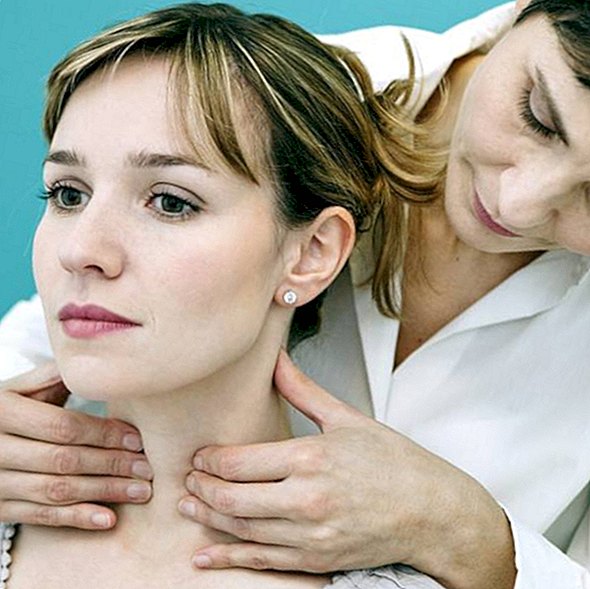Hypothyroidism: What is behind it?

What is a hypothyroidism?
In hypothyroidism, the thyroid gland makes fewer hormones than the body needs. In case of hyperthyroidism, on the other hand, exactly the opposite is the case. Thyroxine and triiodothyronine affect almost all metabolic processes. But when these hormones are barely produced, the entire metabolic activity is throttled, which in turn causes discomfort. In addition, the thyroid hormones affect the circulation and the mind.
Especially in children, the Hypothyroidism, as the disease is termed have serious consequences. The reason: The thyroid hormone is also responsible for the physical growth and development of the brain.
What are the causes of hypothyroidism?
Physicians distinguish between three different forms of hypothyroidism. Primary hypothyroidism is the most common form? The cause of the disease lies in the thyroid gland itself. Some children are born with or without a defective thyroid gland, while others develop hypofunction due to chronic inflammation of the hormone-producing gland. In this case one speaks of Hashimoto Thyreoiditis, an autoimmune illness: The body forms for unknown reasons special antibodies, which destroy the own thyroid tissue. The thyroid gland can therefore no longer produce sufficient amounts of thyroid hormones.
Less common is secondary hypothyroidism, the cause of which lies in a diseased pituitary (pituitary gland). Even less common is tertiary hypothyroidism, which is due to damage to the hypothalamus. By the way: In Germany, about one percent of the population suffer from a hypofunction of the thyroid About one in 3,500 newborn babies is born with congenital hypothyroidism.
Which symptoms herald hypothyroidism?
The metabolic disease announces itself creeping ? and is rarely recognized at the beginning. The low (or lack of) production of hormones affects different body organs, the nervous system and your psyche. You should pay attention to the following symptoms, as they indicate hypothyroidism:
- Power and concentration weakness and fatigue, listlessness, apathy and increased need for sleep (at the same time often sleep disorders), sensitivity to cold
- slowed reflexes and muscle spasms
- Weight gain and increased blood lipid levels (especially cholesterol) without changing eating habits
- cool, pale and dry skin
- brittle, brittle and falling hair
- hoarse, deep voice and slow language
- Disorders in the menstrual cycle
- Reduction of libido and potency in men
- Swelling of the subcutaneous connective tissue and the face; Affected people seem "bloated"
- chronic constipation
- Goiter thyroid gland, which is caused by iodine deficiency - can be avoided by iodine intake
- Slowing of the heartbeat, enlargement of the heart, low blood pressure
- low blood pressure
How is the metabolic disease detected?
Hypothyroidism is detected in the doctor (eg endocrinology), who can make a diagnosis based on the descriptions of the symptoms. At the beginning there is a blood test ? and the determination of the laboratory value TSH, which gives indications of hypothyroidism. For a subfunction, the TSH value is increased. If there is a secondary or tertiary disease, the TSH level is too low. In addition, the thyroid hormone levels are determined in the blood test. If the concentration is below the normal value, a medical report is: Hypothyroidism.
In addition to the blood test, procedures such as ultrasound or scintigraphy can provide important information. If there is inflammation of the thyroid gland, the organ appears dark on ultrasound. In a scintigraphy, the patient gets a radioactive substance injected into the veins? If there is a metabolic disease, the thyroid takes on this substance only slightly or not at all.
Treatment: What can be done to combat hypothyroidism?
Hypothyroidism is? With some exceptions ? not curable and must therefore be treated permanently with medication. If the medication is well adjusted, a normal life for those affected is possible. The goal of a hypothyroid treatment must be natural, to compensate for the resulting hormone deficiency, which is why the body synonymous synthetically produced thyroxine is supplied, which also stimulates the production of other thyroid hormone. In most cases, iodine is also prescribed, as hypofunction often accompanies iodine deficiency.
As a rule, the patients are prescribed a low dose because overdosed preparations can lead to side effects such as cardiac arrhythmias. The final dose, however, is based on the basal TSH value as well as the subjective well-being of the patient. Over time, follow-up tests and blood tests follow during a subfunction.
Find out more about the thyroid gland in our articles Hashimoto Thyroiditis, Hashimoto Symptoms and How My Thyroid Driven me Almost Into Depression.
Videotipp: Sick by the job - especially women are affected











